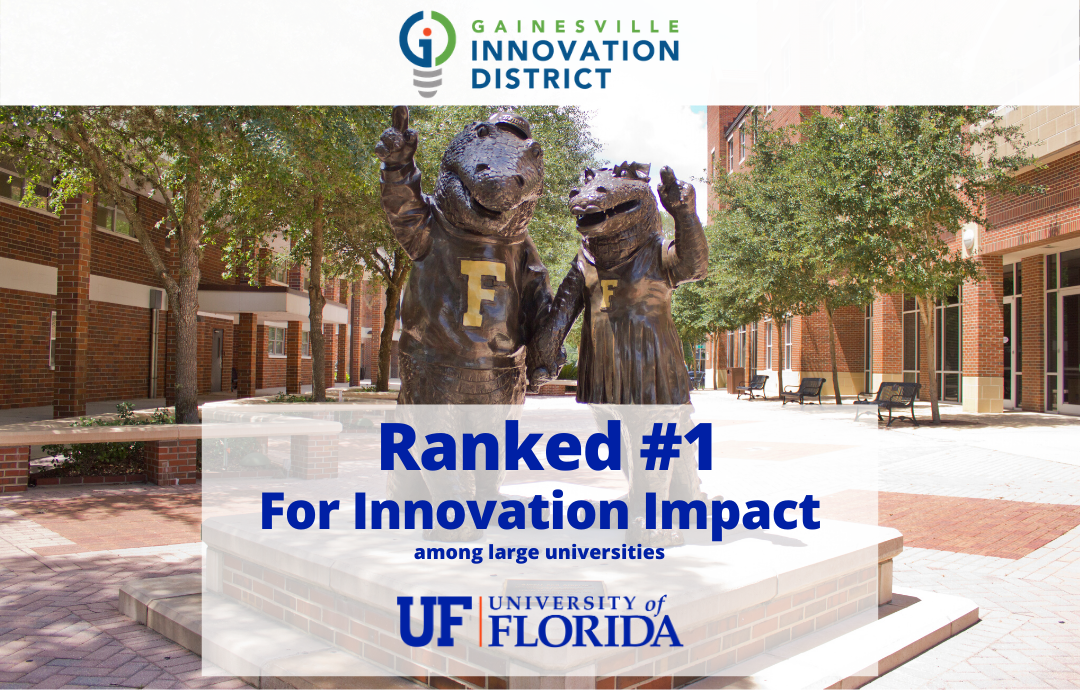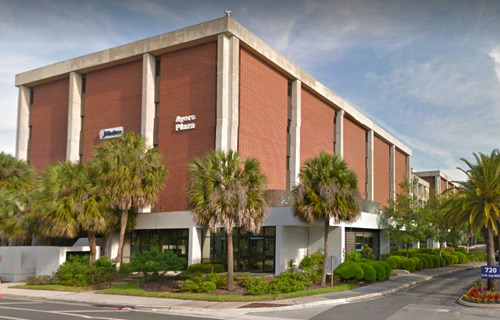UF Nationally Recognized as No. 1 in Innovation Impact
5 years agoIn a report released June 17, the University of Florida ranked no. 1 in innovation impact among a group of large research universities.
Compiled by the George W. Bush Institute and the Opus Faveo Innovation Development consulting firm, which comprises of economists and business development experts, the report explored research efforts and ranked 195 universities for innovation impact. The team concluded “the University of Florida ranks first among the group of largest universities in our study for productivity in turning research inputs to innovation impact outputs.”
According to the report, universities occupy a “vital role in fueling innovation, which drives long-term economic growth and rising living standards in the U.S. economy and society.” Research efforts are especially important for bolstering economic growth nationally and locally. Nationally, it is estimated universities spend $75 billion per year on research which calculates to 14 percent of total higher education spending in the U.S., according to the report.
On a local level, UF’s focus on research and development is particularly demonstrated by UF Innovate, the umbrella organization that oversees the university’s divisions of licensing, ventures, and two business incubators, the Hub and Sid Martin Biotech. Forming an extensive commercialization system, UF Innovate has worked with thousands of entrepreneurs and innovators since its establishment in 1985, launching innovative companies and bringing commercial ideas to the market.
UF Innovate’s cutting-edge work has led to the establishment of the Gainesville Innovation District, which is anchored by incubator The Hub. A growing area of town located blocks away from UF’s main campus, the Innovation District is home to a community of over 80 startups and established businesses. Featuring industries ranging from software development to engineering, this region is an example of how the pioneering spirit at UF has created a positive impact on the local economy.
In the overall ranking, UF ranked sixth after the University of California system, University of Texas system, the Massachusetts Institute of Technology, the University of Washington, and the University of Michigan. However, “when the researchers then divided that impact number by the institutions’ total research expenditures as a way to measure relative productivity, UF jumped to the top among the largest universities,” according to UF News.
“For our size, we move more technologies to the point of impact than anyone else, period,” Jim O’Connell, assistant vice president for commercialization at UF and director of UF Innovate, told UF News. “In the simplest sense, that is the ultimate job of all tech transfer organizations, and UF does it really, really well.”
Between 2013 and 2017, UF generated an average of 123 issued patents and 15 startups per year, resulting in a spot among top performing U.S. universities on these measures, according to the report.
The report also noted “productivity in innovation impact positively correlates with productivity in research and teaching impact, refuting the premise of a tradeoff between commercialization and the traditional teaching mission of universities.” In terms of teaching impact, UF ranked fourth overall producing one third as many STEM Ph.D.s each year as the entire University of California system between 2013 and 2017 despite a significantly smaller budget.
“One of the key takeaways in the report is that universities should not fear prioritizing technology innovation, commercialization and entrepreneurship,” O’Connell told UF News. “Instead, the impact of innovation is synergistic with the research and teaching mission of universities and improves performance overall.”







